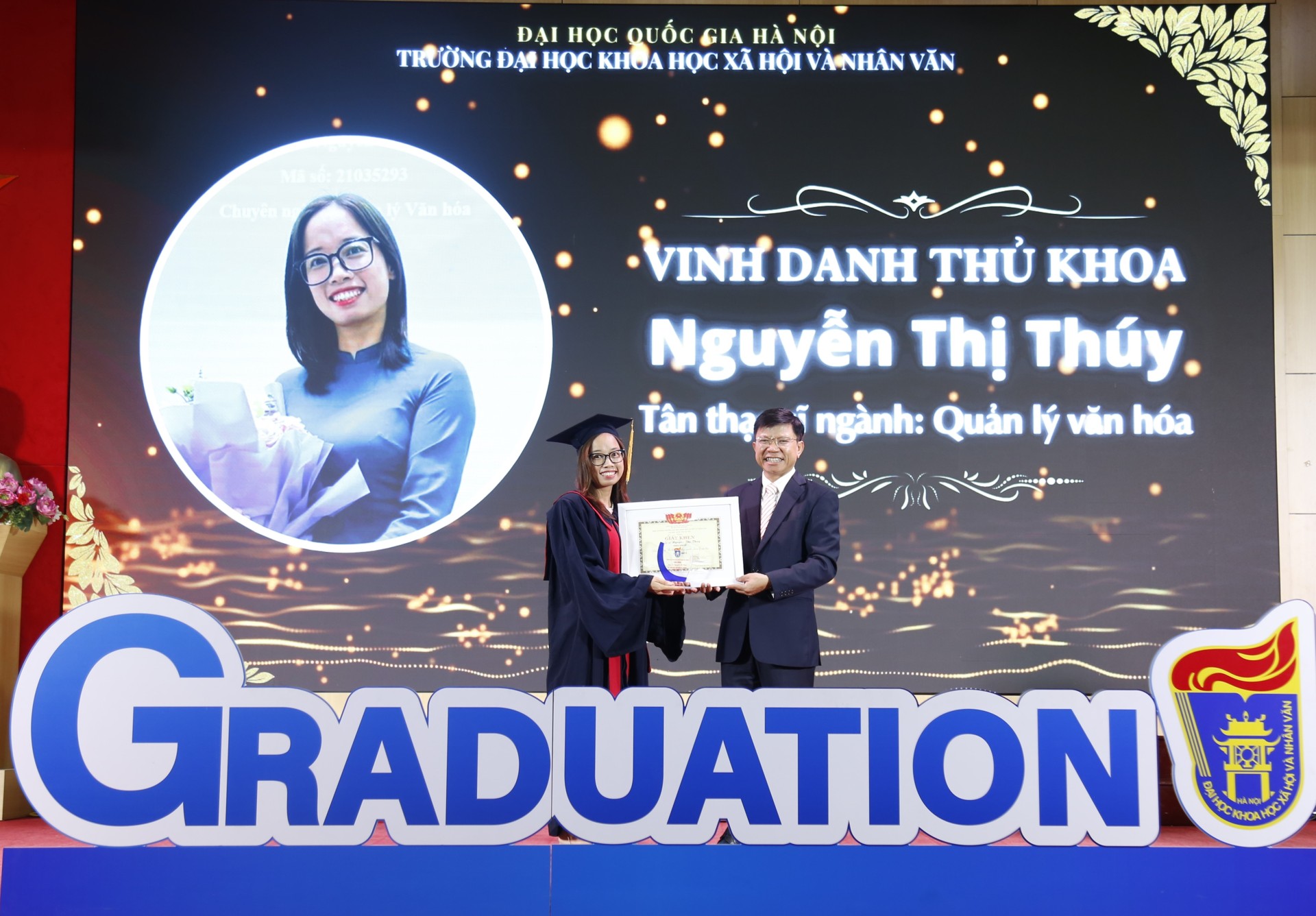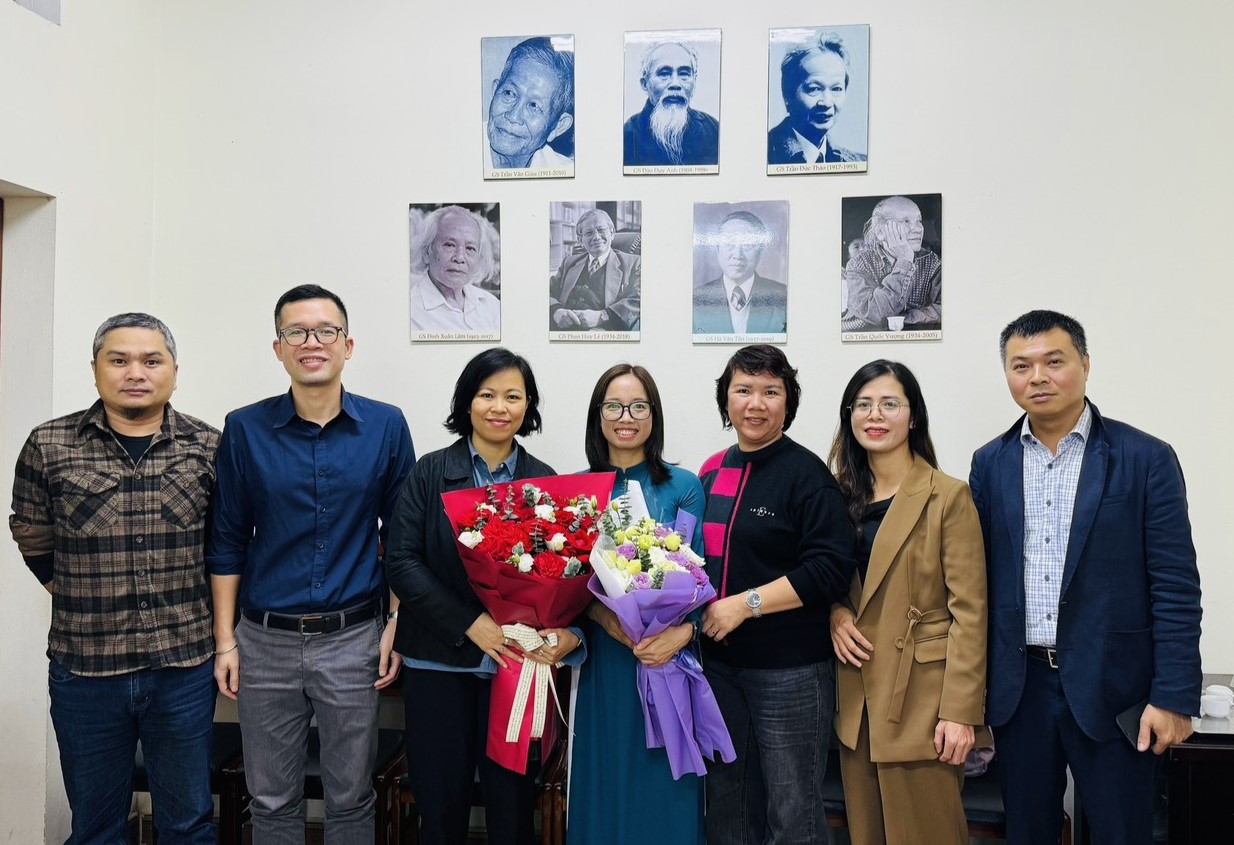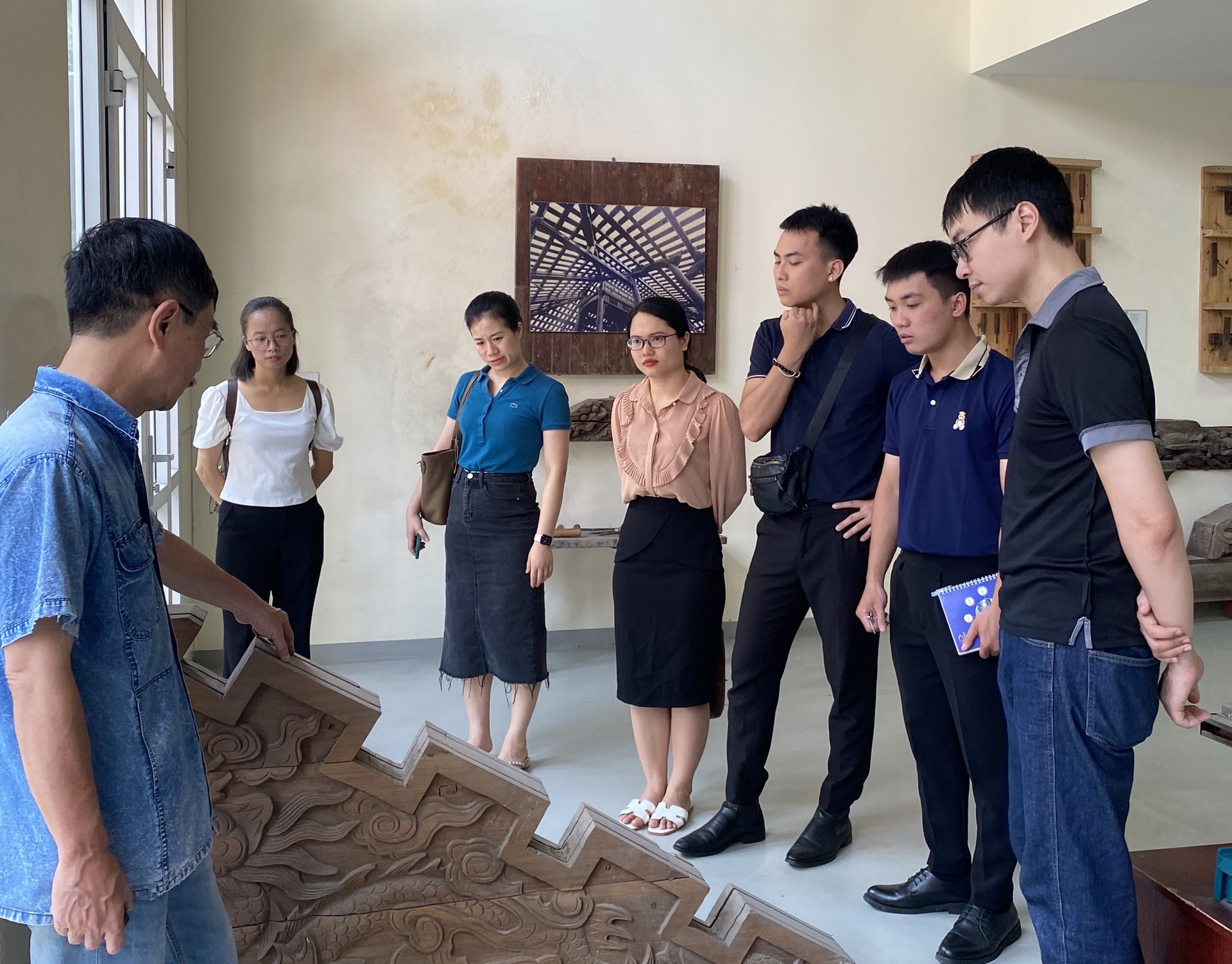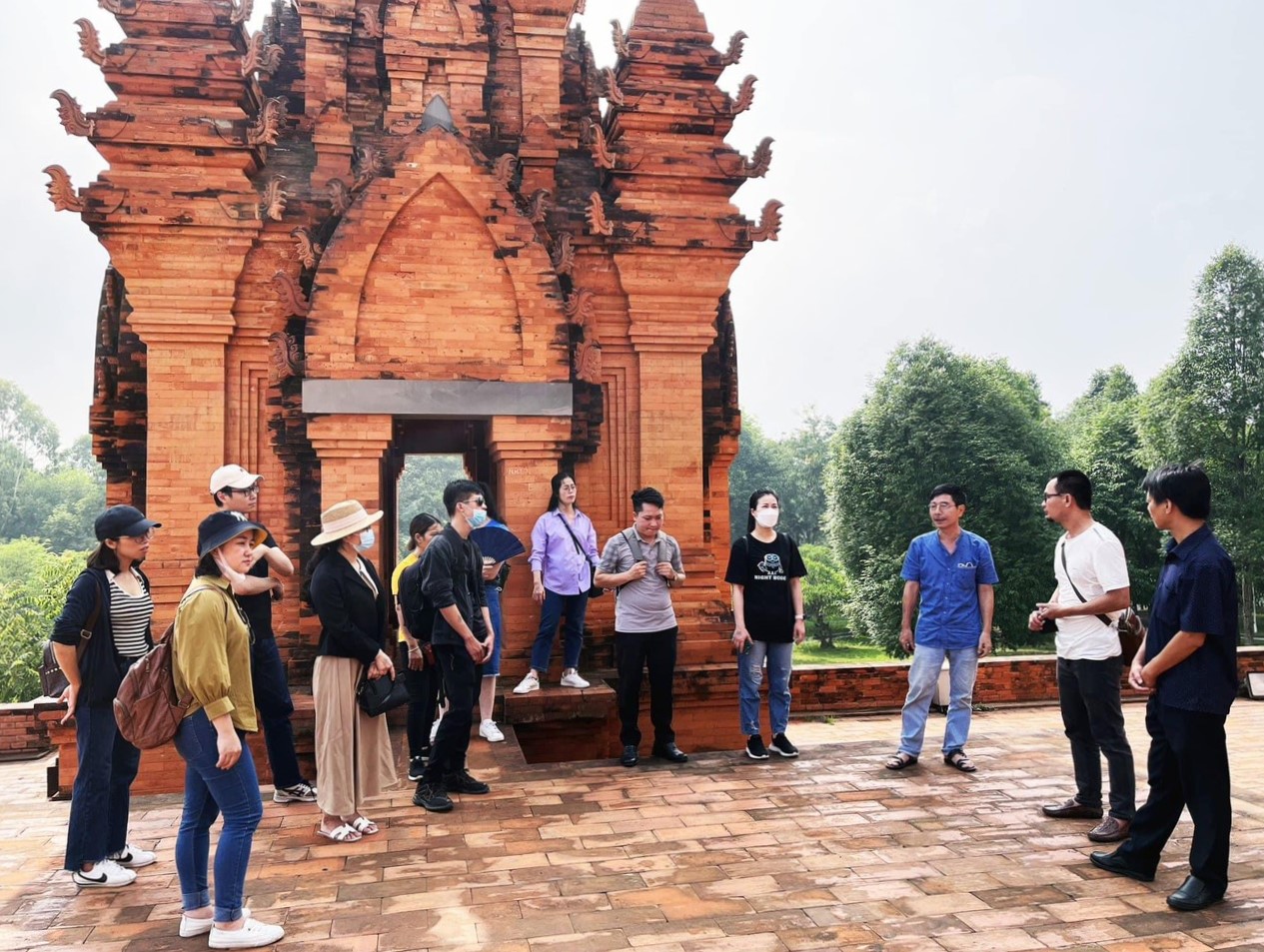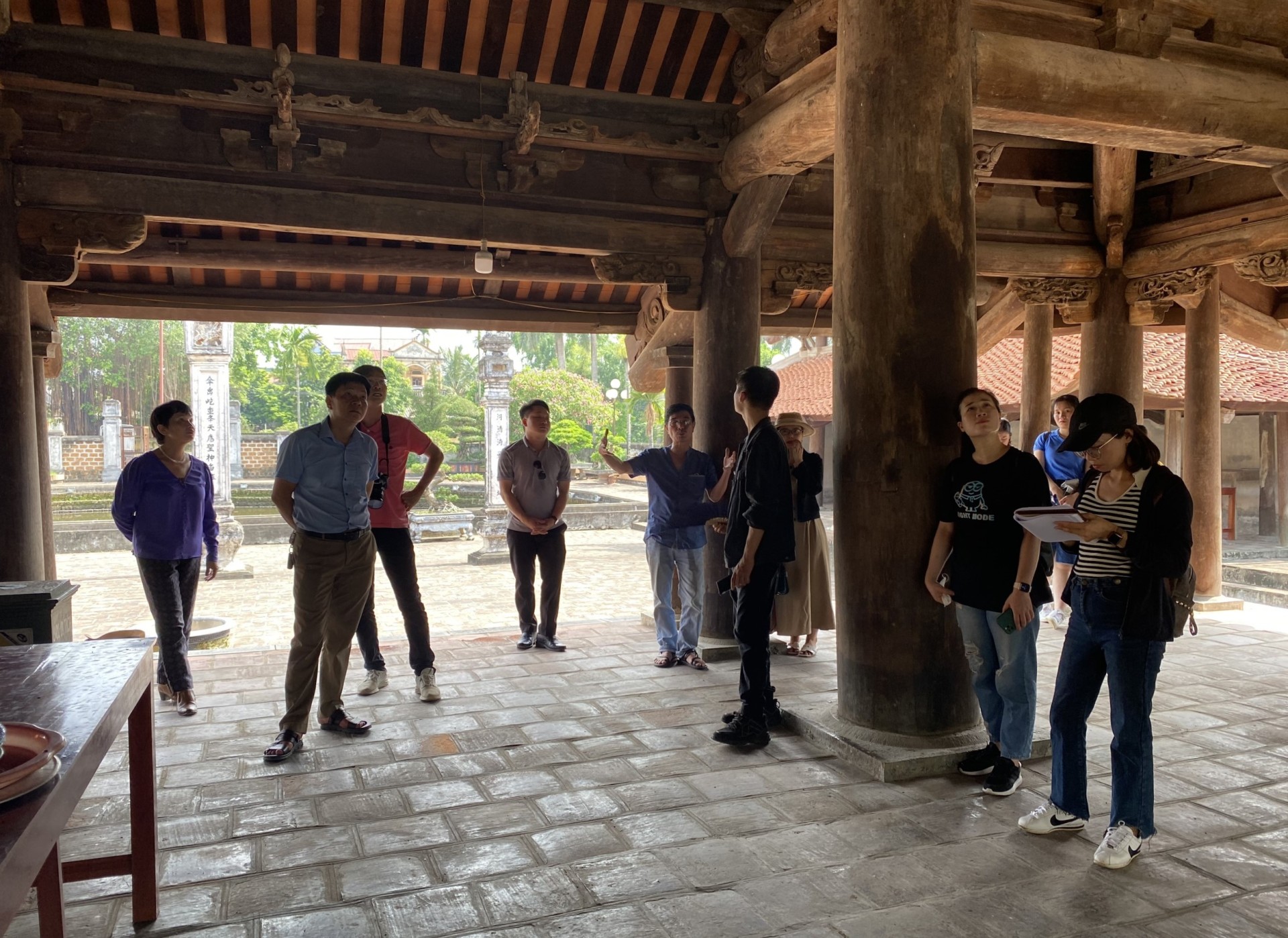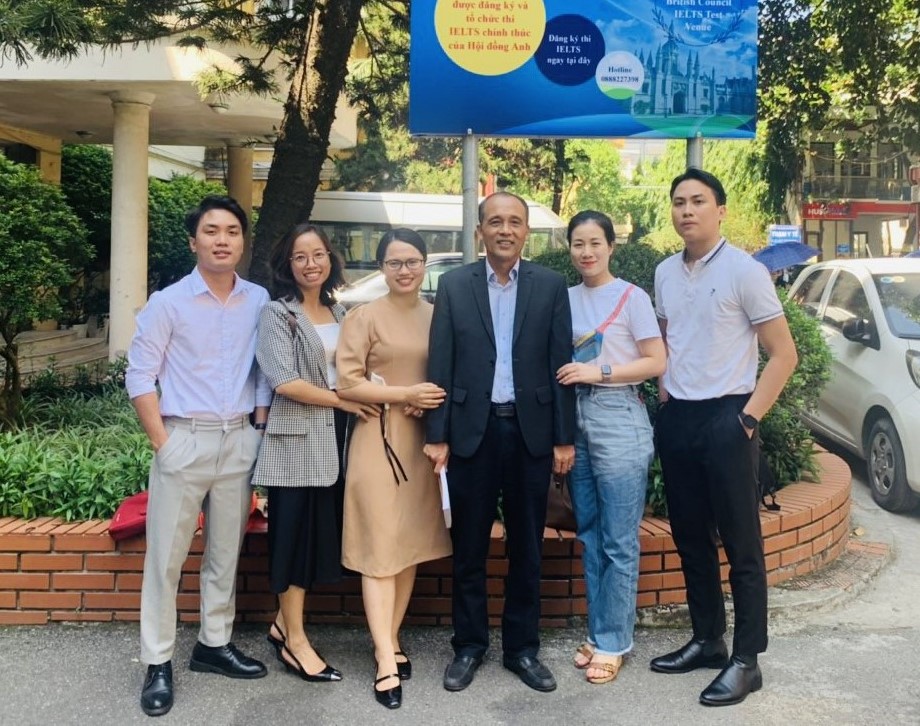With my love and passion for learning about history, as well as my affection for the school with the most extensive history of training in History in Vietnam, I chose the Faculty of History, University of Social Sciences and Humanities as the place to stay for all 4 years of university.
After graduating from K51 of the History Department, I was recruited to work as a researcher at the Thang Long - Hanoi Heritage Conservation Center (Thang Long Imperial Citadel) - a job that was very suitable for the knowledge and skills I had acquired at the University of Social Sciences and Humanities. After graduating with a bachelor's degree, I was transferred directly to the master's degree at VNU-USSH, but I put it aside to prioritize work.
To improve my skills and perform well at work, I have researched master’s degree programs related to cultural management. In fact, many of my colleagues have chosen to study for a master’s degree in cultural management at some training institutions in Hanoi. Many of them also advised me to study there for “easier breathing”. Once again, I temporarily put aside the idea of studying for a master’s degree and waited.
Fortunately, in 2018, the University of Social Sciences and Humanities opened a new program code for Master of Cultural Management. I did not hesitate and registered to take the entrance exam and became a student of the 3rd course of Cultural Management.
The reason is probably very simple: I grew up in the History Department of VNU-USSH, understood the training quality and learning environment at the University of Social Sciences and Humanities, so sooner or later I still only wanted to study at the school. Although I understand that the school's admission regulations and graduation requirements are stricter and more difficult. But I think that only by being strict like that can a master's degree be truly valuable.
Nguyen Thi Thuy: Honestly, when I registered for the exam and was admitted to the Cultural Management major, I and my classmates were still quite vague about the training content.
Regarding the Cultural Studies course, we have studied it since university so we have a basic understanding, but adding the content about “management” is really a challenge. We do not really understand what management is, because the members of the class, some are new graduates, some are already working but are just ordinary civil servants, not yet exposed to much work and positions of cultural managers.
However, the Cultural Management training program has truly provided students with training content of high theoretical and practical value. We learned from basic knowledge such as management science to specialized topics in the field of cultural management in many aspects such as tangible, intangible, religion, belief, architecture, etc. Even more novel are modern knowledge such as cultural industry, practical issues arising in the field of contemporary culture, close to the work we are doing.
One really great point in the Master's program in Cultural Management is that we not only learn knowledge in the classroom but also learn a lot in the field. Some topics such as Cultural Industry, Architectural Heritage Management, Cultural Management - Theory and Application, the teachers all arranged for us to go on field trips to famous relic sites at communal houses and temples in Ba Vi, relics being excavated in Bac Giang or an exhibition on cultural creation at the Vietnam National Institute of Culture and Arts. Field studies are really interesting, for us if there were no such combined trips, it would be really difficult to go on our own. We were able to directly observe relics and artifacts, directly listen to cultural managers discuss practical issues and the teachers explained in detail with specific cases, it was really a great learning opportunity.
Master's class in Cultural Management goes on a field trip to the Institute for Monument Conservation
Master's class in Cultural Management goes on a field trip to the Vietnam National Village for Ethnic Culture
Master's class in Cultural Management went on a field trip to some ancient communal houses in Ba Vi
One thing that impressed and touched me was that during the field trip, the teachers loved their students very much, trying to find ways to save costs as much as possible for their students. The teachers connected through their relationships, even spending their own money to support students because they felt sorry for the "poor" students. In 2021, in the midst of the complicated Covid epidemic, the teachers still arranged to finish teaching the theoretical program through online or offline lessons. And as soon as the epidemic subsided, the teachers still arranged for the class to have enough field trips. During the course of studying the topics, the teachers were also very flexible in arranging teaching and learning time, creating the best conditions for students to complete their studies while still ensuring a good job at the office and taking care of their families.
During our master's studies, in addition to the teachers who are regular staff of the History Department, the School invited many teachers and experts from outside the school, who are working in many fields (education, culture, management science) to come and teach. The teachers are all people with many famous scientific works, and at the same time have a lot of practical experience in the fields in which they are working. Therefore, the lectures of the teachers are extremely high quality, easy to understand, easy to absorb and extremely interesting.
I feel I made the right choice when I decided to study the Master's program in Cultural Management at the Faculty of History, University of Social Sciences and Humanities, VNU.
PV:The study time is quite short, while still having to ensure the completion of work at the office and family, but you still completed it excellently with the title of Valedictorian? So what is your “secret” to being able to balance and complete everything well?
Nguyen Thi Thuy:Studying for a master's degree is not easy for working people, especially in extremely stressful epidemic conditions when all activities are interrupted.
At the beginning of the program, after 5pm, I would quickly grab a bite to eat and then drive back to school to start studying from 6pm to 9pm. When I finished a topic, I also tried to complete my homework on time, not allowing myself to not do it because the teachers did not ask me to submit it right away.
The most stressful time is the graduation thesis period. I wrote my thesis in the last months of 2023, which is also the busiest time at work when I have to complete the work plans of the year. The work still has to be completed on schedule, but if I delay my thesis, my study time will be extended, which means my graduation plan will be delayed and it will "cost money". I don't have any great secret, I just always chant the mantra "keep going, keep going" and try to arrange my work reasonably, when I have a break I focus on my thesis, if I can't do it during the day I will try to do it at home at night.
PV:Some people say that job positions in the fields of Cultural Studies and Cultural Management are currently quite limited, so it is difficult for students and graduates to find jobs in the current labor market. What do you think about this opinion?
Nguyen Thi Thuy:I am a lucky person, graduated with a Bachelor's degree, graduated and got a job in a very good professional organization. In my time 14 years ago or now, finding a job for fresh graduates is still quite difficult, especially for social sciences, it is even more difficult. Studying cultural studies or cultural management is both easy and difficult to find a job. It is easy because the major of cultural studies or cultural management covers many areas of life, so it is easier for students to find a job, jobs that are more or less related to their major. For example, there are currently many entertainment channels for young people inspired by traditional cultural elements of the nation, which will be an opportunity for young people graduating from this major.
But if you graduate and only want to work in units such as cultural establishments or cultural management establishments in the state system, it will be difficult, because there are few positions and a lot of experience is required.
Therefore, in my opinion, when studying Culture or any other field, on the basis of specialized knowledge, each person must practice other skills to expand job opportunities.
When talking about the most memorable memory during her time studying at the Faculty of History, University of Social Sciences and Humanities, especially during the complicated Covid-19 period, Thuy emotionally shared:I have many memorable memories during my studies, but perhaps the most memorable are the online classes in late 2021 and early 2022. At that time, the Covid epidemic was very complicated, my class had to switch to studying some topics online. Instead of finishing and rushing back to school, at that time, I finished and rushed home to start sitting in front of the computer screen at 8:00 p.m. to start studying online.
I remember that while I was studying a topic with Associate Professor Dr. Vu Van Quan (at that time he was the Head of the Department), I got Covid. I sat at home studying online but my cough wouldn't go away. He felt sorry for me and let me take a break, telling me to continue studying when I was better. When I recovered, it was his turn to get Covid. When he went to class, he was coughing while teaching, his voice was hoarse but he still tried to stay up for the whole class. The next day, he couldn't hold on so he texted me (I was the class monitor) to let the class take a break. As a result, the topic lasted longer than planned.
Until now, I still remember clearly the feeling when the epidemic was over, no longer having to wear masks, teachers and students could "see each other" for the first time, although still through the computer screen. Because before that, in class, both teachers and students wore masks tightly.
Nguyen Thi Thuy (2nd from right) and her classmates in the Master's Class of Cultural Management K3 took a photo with Associate Professor, Dr. Vu Van Quan
Sharing about her future plans, Thuy said: A few days ago, when I attended the warm and emotional 2024 Doctoral and Master's Degree Award Ceremony at the 8th floor Hall of Building E, listening to the sharing from Principal Hoang Anh Tuan and the new PhDs, I also really wanted to continue studying to stand on the podium to receive my degree like them. At that emotional moment, I remembered my decision to study here for more than 2 years. It was difficult and tiring, but holding the degree felt so valuable.
At the moment, I have no plans to study for a PhD degree right away, but if I do plan to continue studying, I will definitely choose the Faculty of History, University of Social Sciences and Humanities, VNU! And I will always carry with me the pride of being a student and master of Hanoi Humanities.
Admission information for Master's degree in Cultural Management at VNU-USSH see details
here
